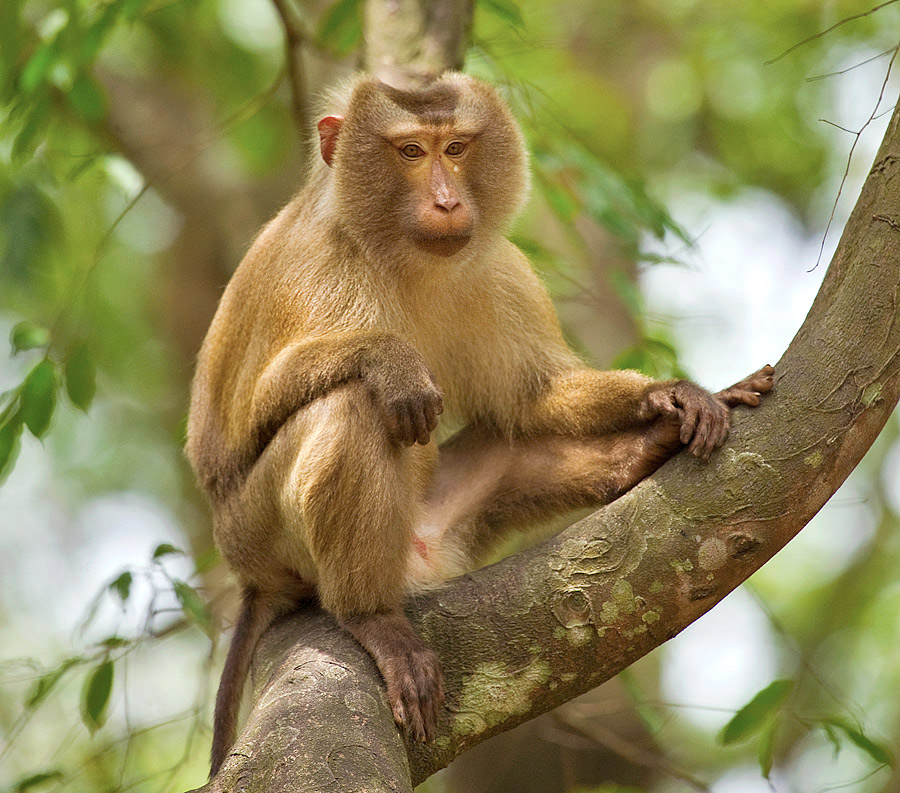
Northern Pig-tailed Macaque (Macaca leonina) is a terrestrial species of primate. However, when needed, they can climb trees with ease. They are silent in nature and keep themselves strictly to the dense evergreen forests making them difficult to observe. They are locally known as Kangh by Nagas (may be because of their call which sounds like Kang). Studies have shown that a third of their diet comprises of insects and they are more closely related to the western ghats endemic Lion-tailed Macaque (Macaca silenus) than any other macaque (Narayan Sharma pers. comm.)
This species has a wide distribution ranging from eastern Bangladesh, Cambodia, southern China (southwestern Yunnan), northeastern India (Arunachal Pradesh, Assam, Manipur, Meghalaya, Mizoram, Nagaland and Tripura), Lao PDR, Myanmar (including the Mergui Archipelago), Thailand and central and southern Vietnam. It is estimated that the population of this species has declined by 30% in last 30 years and will dwindle by another 30% in the coming years.
The main causes for decline in population is loss of evergreen jungle habitat, due to jhum cultivation, selective logging of fruiting trees and deliberately set forest fires. These threats have lead to fragmentation of habitats within the existing range of this species. Hunting for meat and trade in Chinese medicine is an additional serious threat.
This species has been listed as vulnerable according to the IUCN Redlist and comes under schedule II under wildlife protection act in India.
The best places to observe this species in India are Sipahijala WLS, Tripura and Gibbon WLS, Assam. During our recent visit to Sipahijhala WLS in Tripura we encountered four individuals of this species, sadly hanging around in tourist area feeding at the garbage dump.

 CI is a non-profit, non-commercial portal that aims to facilitate wildlife and nature conservation by providing reliable information and the tools needed to campaign effectively.
CI is a non-profit, non-commercial portal that aims to facilitate wildlife and nature conservation by providing reliable information and the tools needed to campaign effectively.
Chosen as 'Picture of the Week'
These primates suffer from habitat loss due to jhum, conversion of forests to tea, rubber & timber plantations, paper mills, and human settlements.